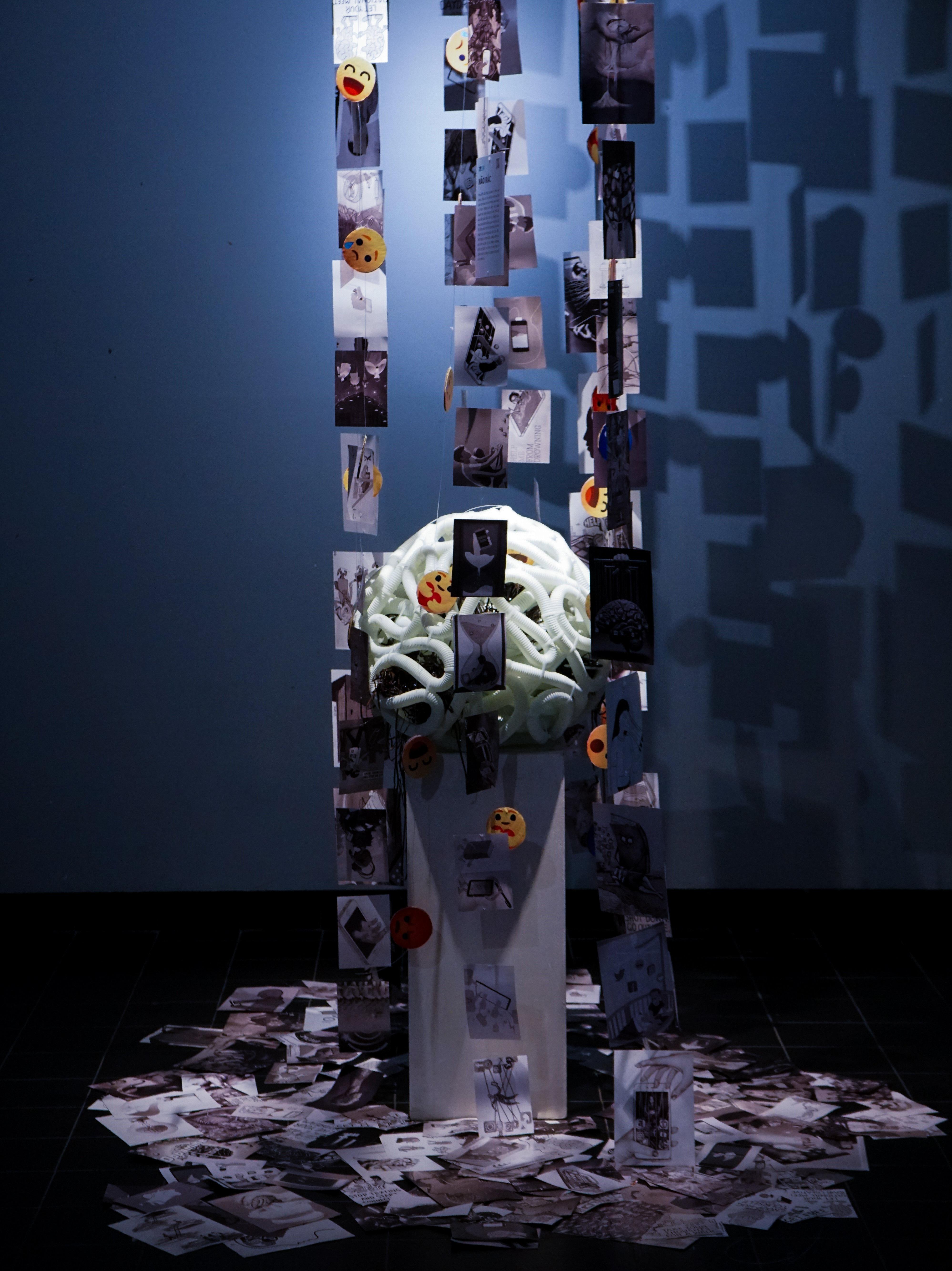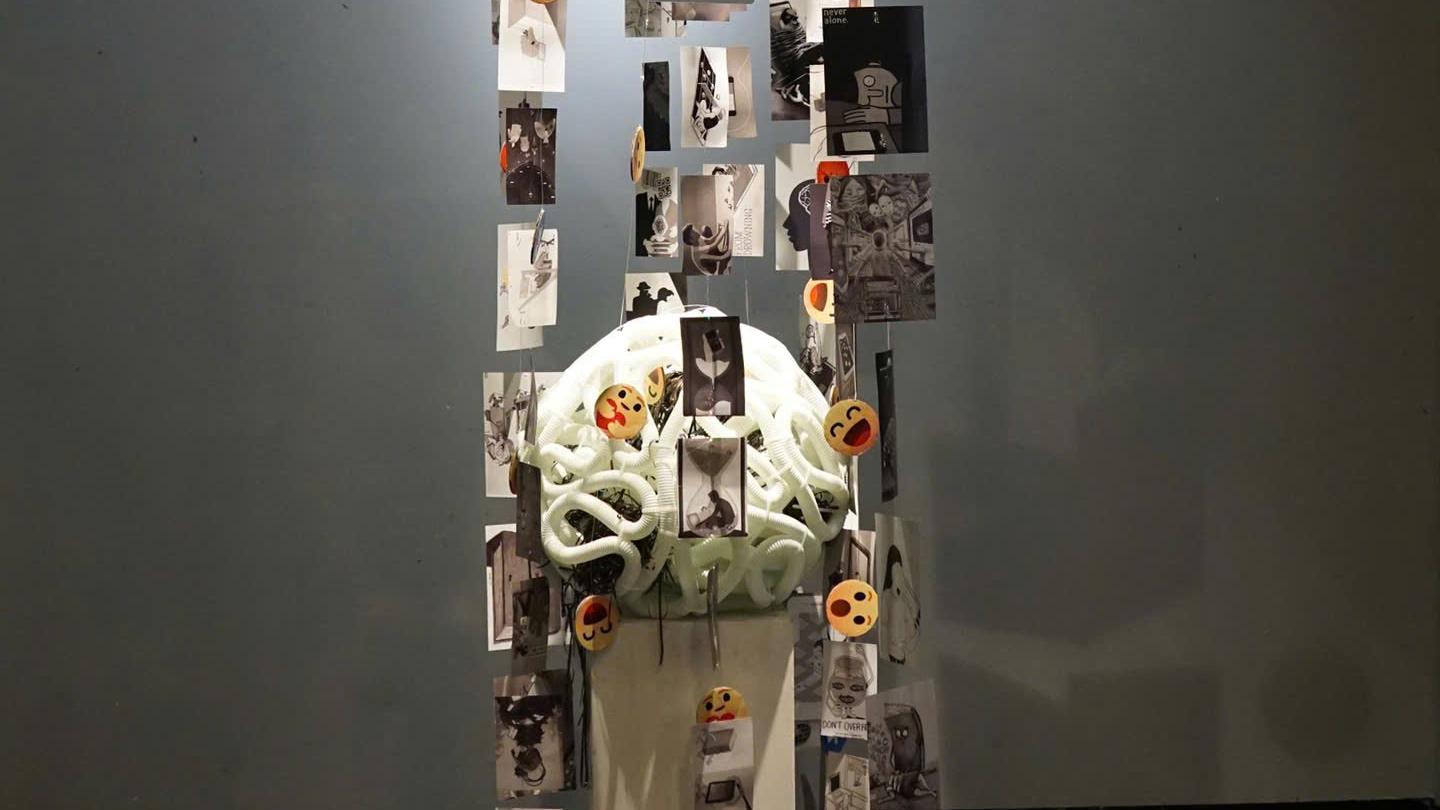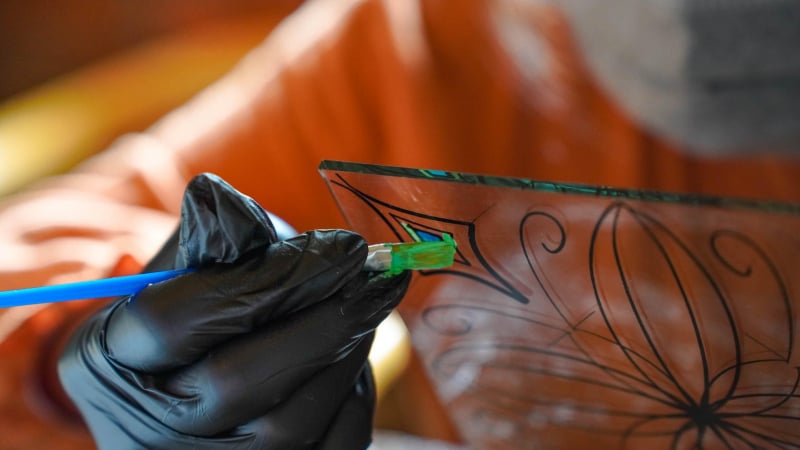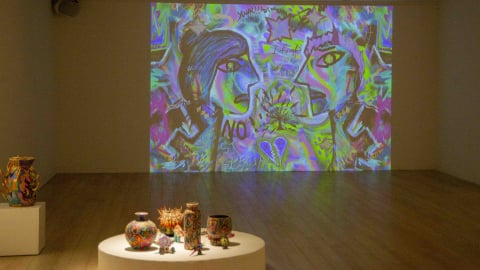Gen Z's Digital Age Mind Map: When "Brain Rot" Becomes a Warning Sign
Brain rot, a cognitive decline syndrome caused by excessive exposure to harmful digital content, is becoming increasingly prevalent among young people. In response to this, a group of FPT University Hanoi students chose a different approach: bringing the issue into the realm of creative art. Their installation exhibition, "Roll or Roll," part of the MIND BACK communication project, combines visual art and interactive technology to raise awareness of brain rot – not just as a personal phenomenon, but as a sign of generational lifestyles. Simultaneously, the exhibition addresses information consumption habits in the digital age, opening a space for dialogue and reflection.
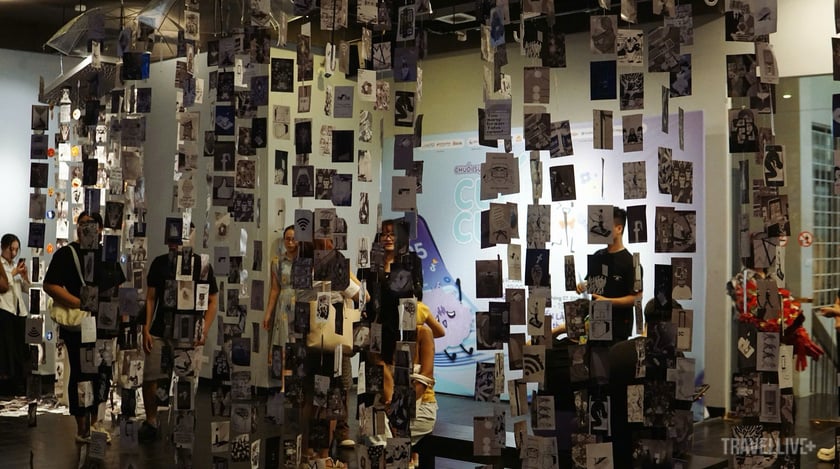
The installation exhibition "Scroll or Roll" is part of the MIND BACK communication project, combining visual art and interactive technology to raise awareness about "brain rot".
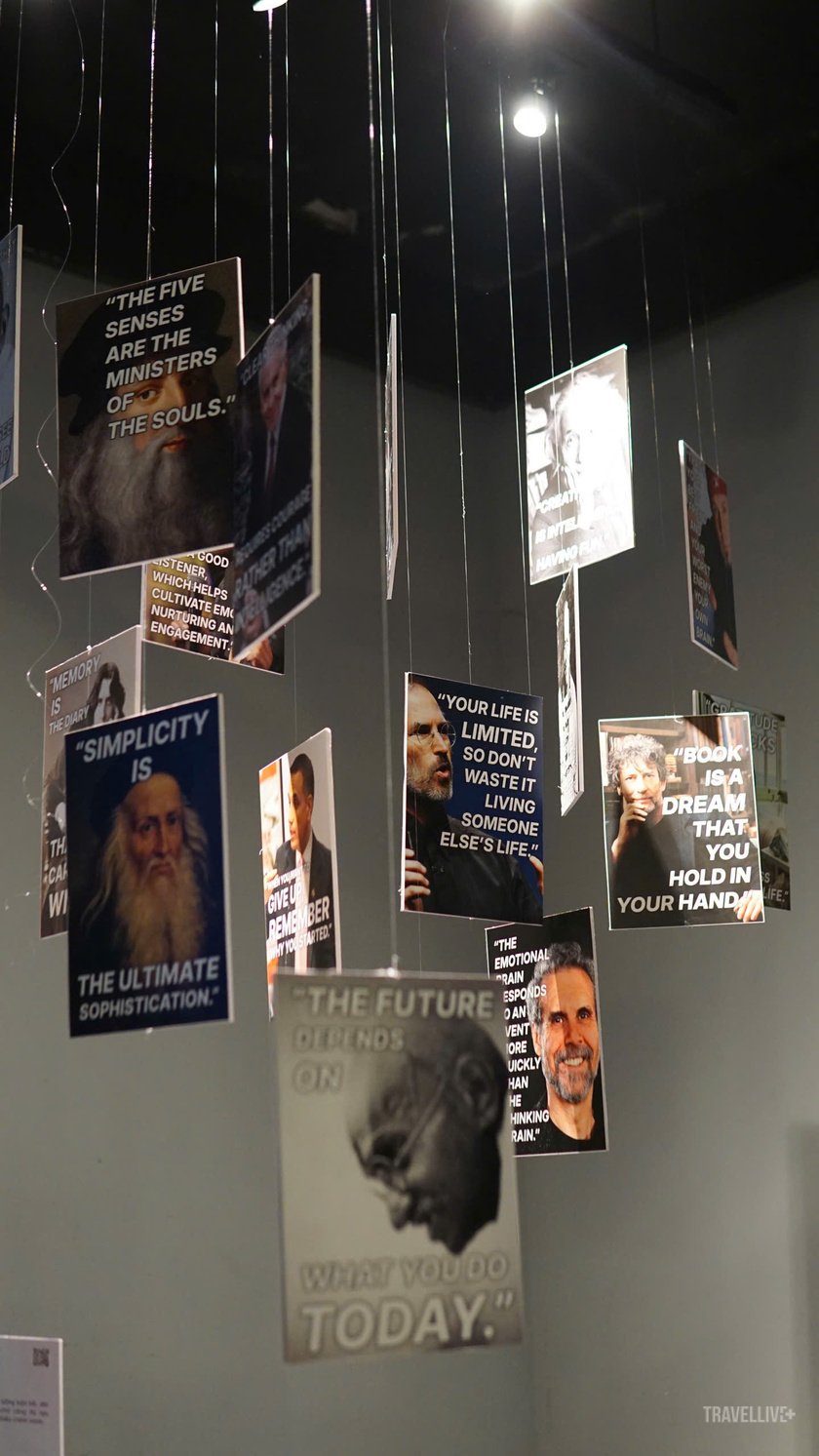
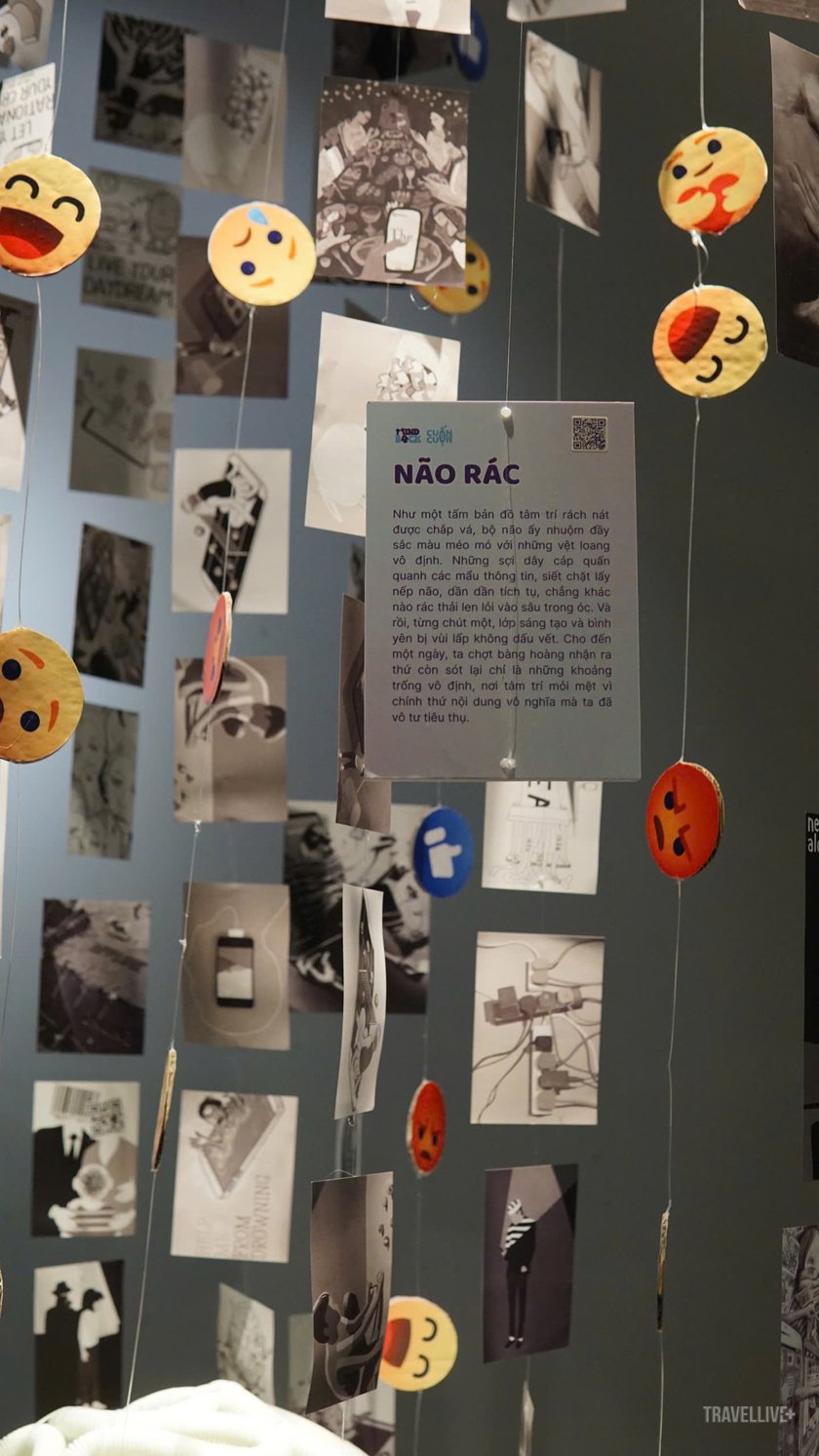
Speaking to Travellive, Vuong Huyen Nhi, representative of the MIND BACK project, said: "We want to deliver a message to young people in a creative, relatable way that speaks the language of Gen Z. MIND BACK was born from familiar experiences: impatience, distraction, and emptiness after hours of browsing social media. The project is a call for young people to choose mindfulness instead of passively being swept away, to change their digital content consumption habits, and to help their brains find their rightful place in a more insightful present."
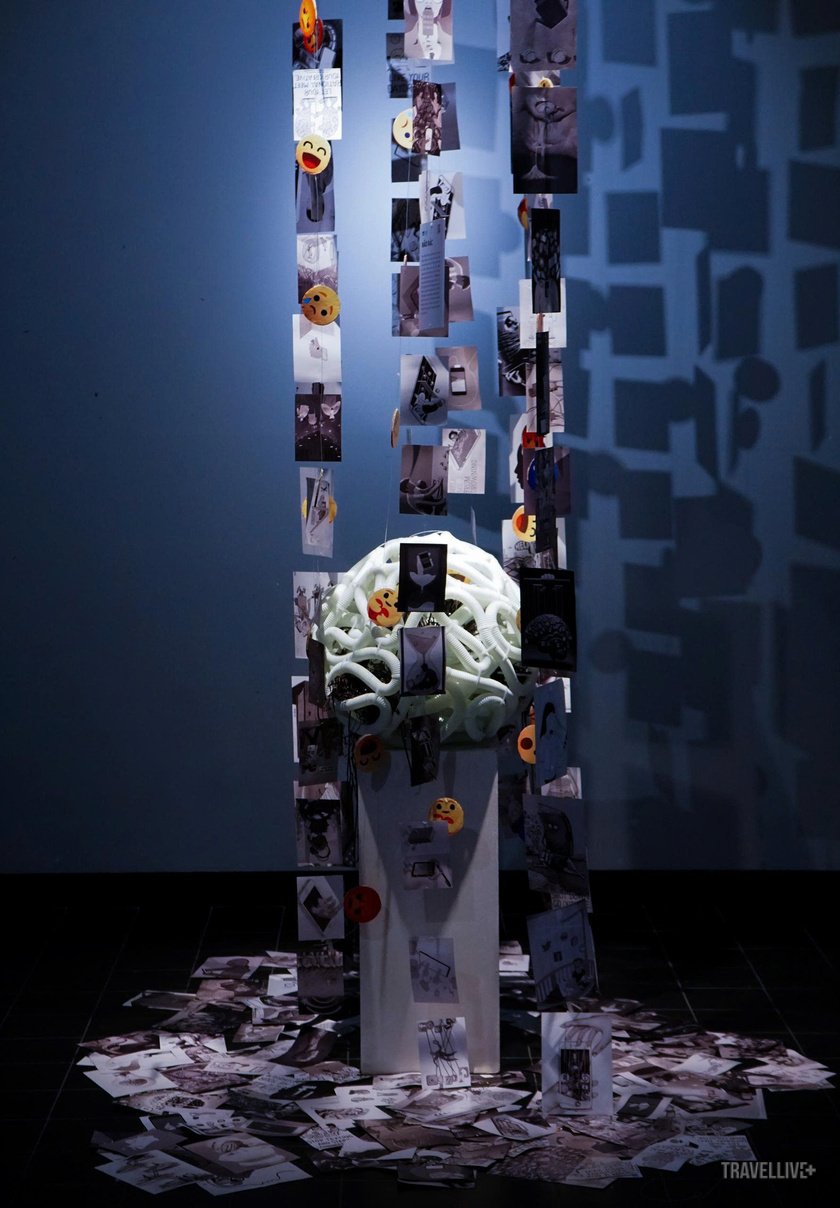
"Junk Brain" – a brain tightly entangled by chaotic information threads, a metaphor for cognitive saturation.
"Brain rot" is a global keyword referring to the decline in mental and intellectual abilities caused by excessive exposure to low-quality digital content. According to research reports, this phenomenon increased by 230% in one year (2023-2024) and was chosen by Oxford as the "Word of the Year 2024," highlighting the urgency of this silently but seriously unfolding mental health crisis. In Vietnam, although "brain rot" has been discussed in the media, public awareness, especially among young people, remains limited. Therefore, the MIND BACK project was created with the aim of improving understanding and changing the digital content consumption habits of young people. This is a creative initiative, a fusion of art, media, and modern psychology.
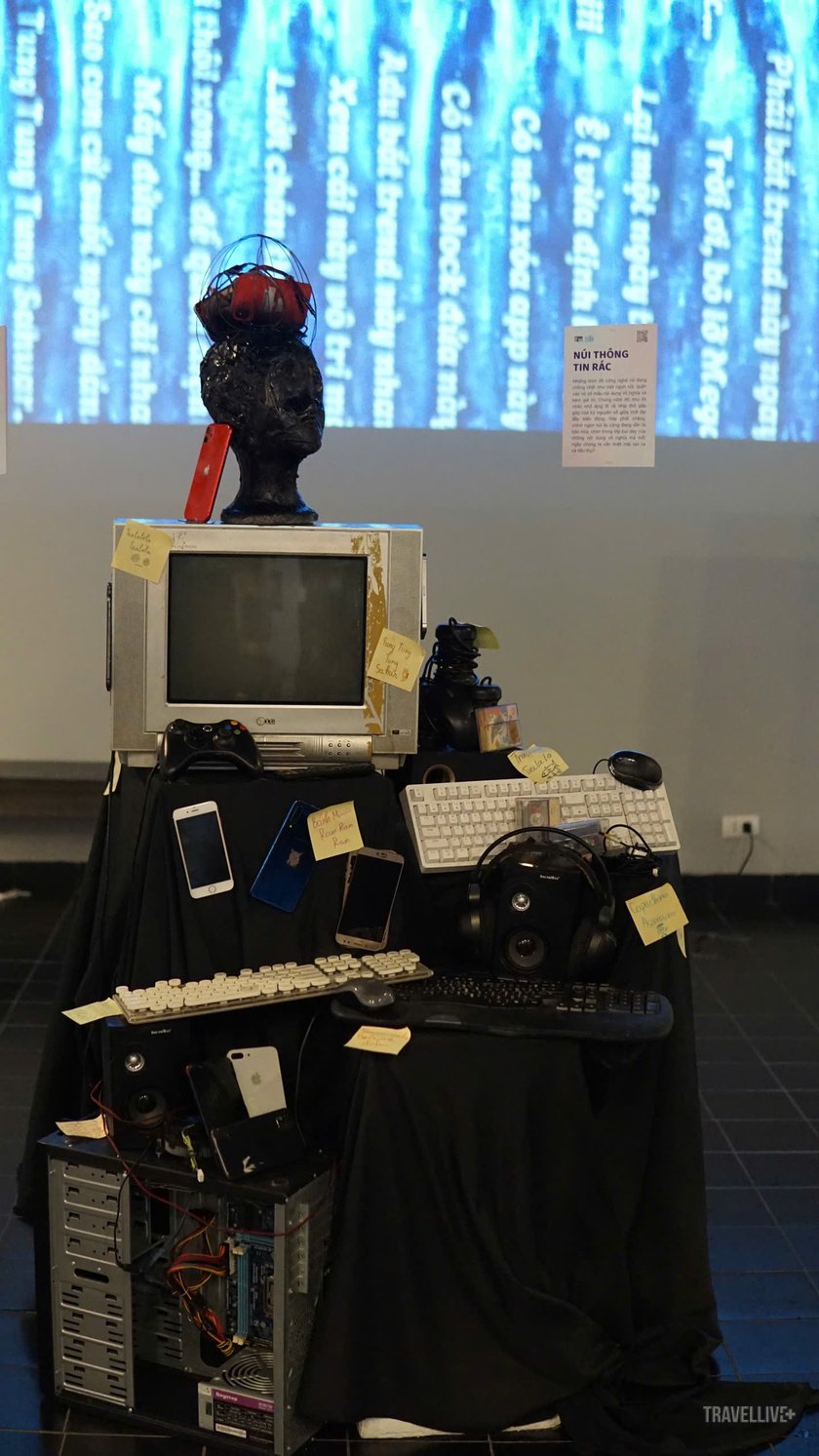
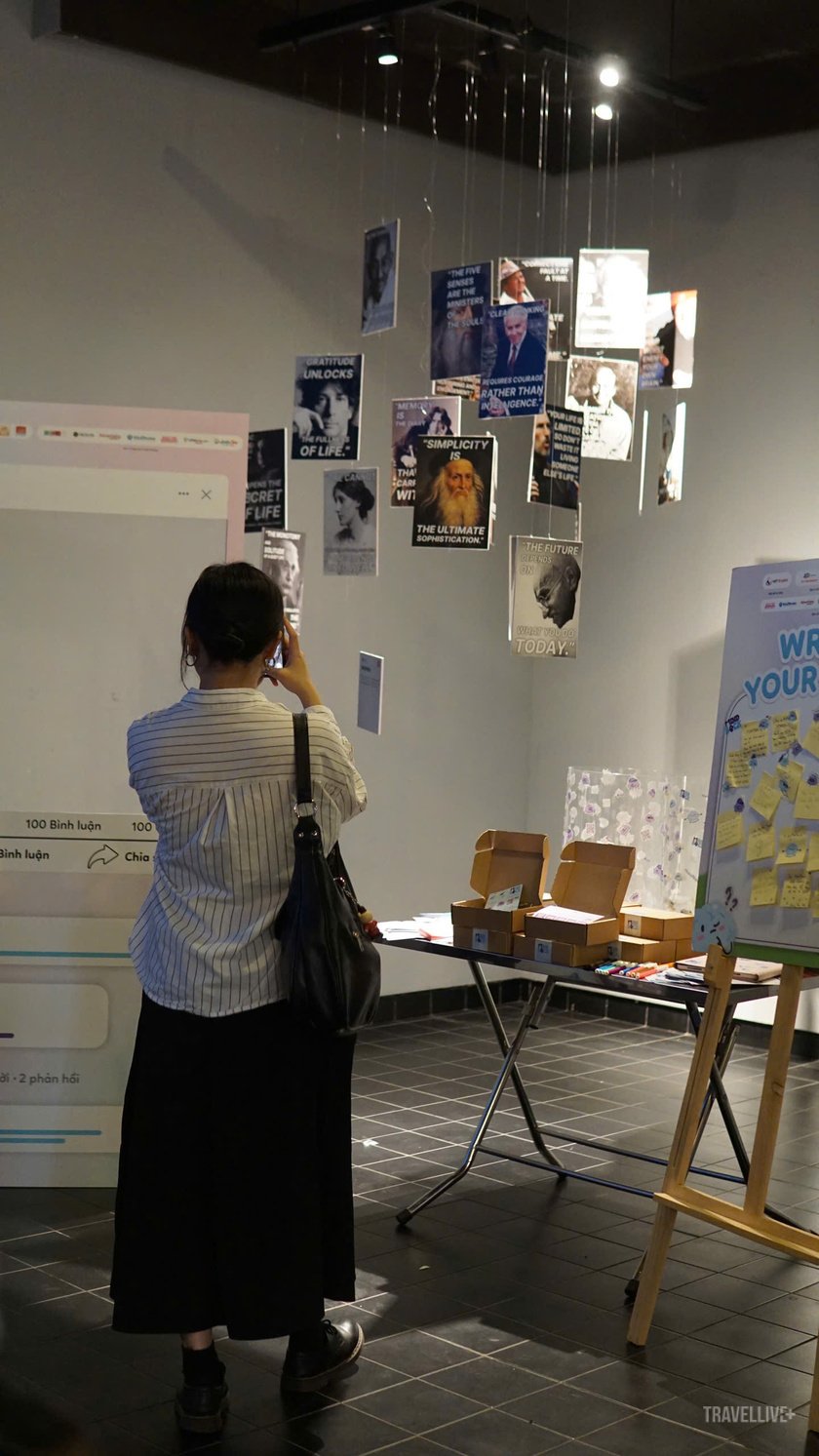
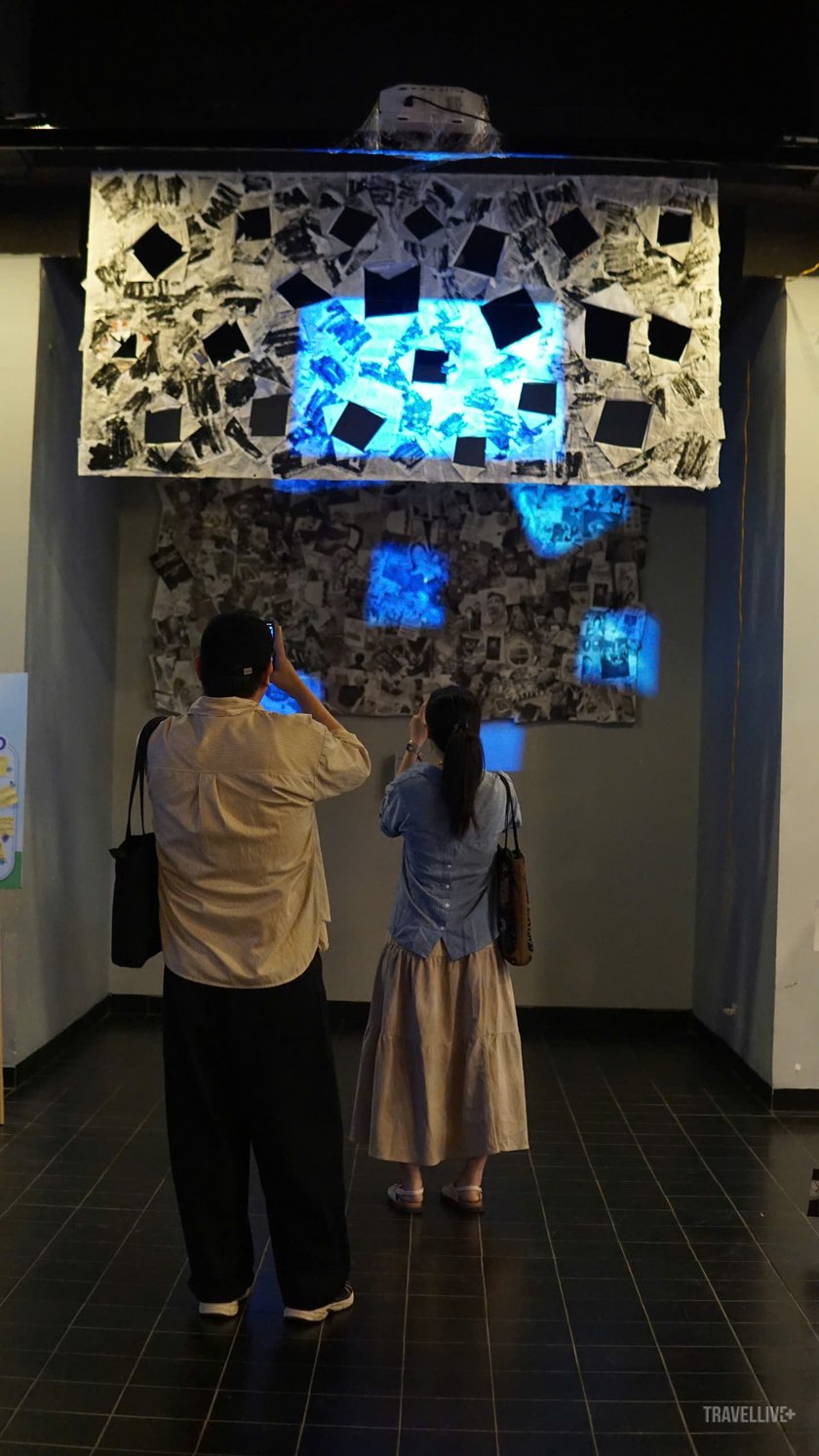
The project is a call for young people to choose mindfulness instead of passively being swept along, changing their digital content consumption habits.
"Scroll or Scroll": The Impact of Digital Content Through Interactive Art
"Scroll or Scroll" is designed as a journey of self-discovery, with each step in the exhibition encountering familiar facets of the "brain rot" phenomenon—from unconscious doomscrolling to the feeling of emptiness after hours of consuming meaningless content. With its unique art space, the exhibition combines installation art and interactive technology, providing attendees with direct, creative, and thought-provoking experiences.
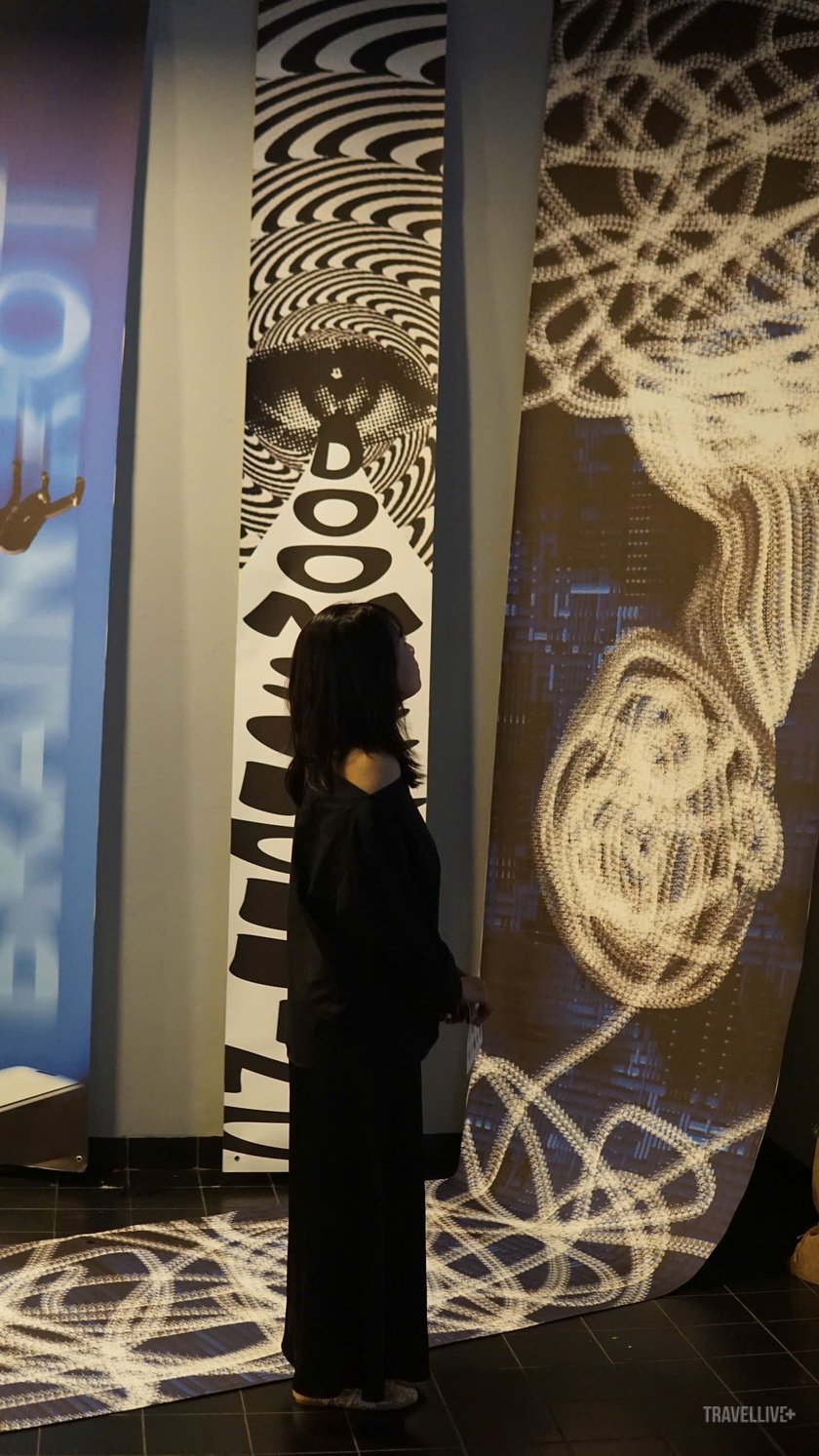
"Scroll or Roll" is designed as a journey of self-discovery.
Twelve installations with powerful visual metaphors guide viewers not only to see but also to touch and feel how the "brain rot" operates in their minds. Notable works include:
- "Currently scrolling" – describes the endless stream of newsfeeds that pulls us into a doomscrolling vortex (mindless browsing);
- "Junk Brain" – a brain tightly entangled by chaotic information threads, a metaphor for cognitive saturation;
- "Data Rain" – depicts the exhaustion caused by a flood of overwhelming information.
- "Mindset" – questioning whether social media is liberating or imprisoning our thinking.
Along with works such as "Mountain of Junk Information," "Open," "Stagnant," and "Priceless," each step in the exhibition is like a whispered reflection: are you being swept away by digital content, or are you truly captivated by the information explosion of the digital age?
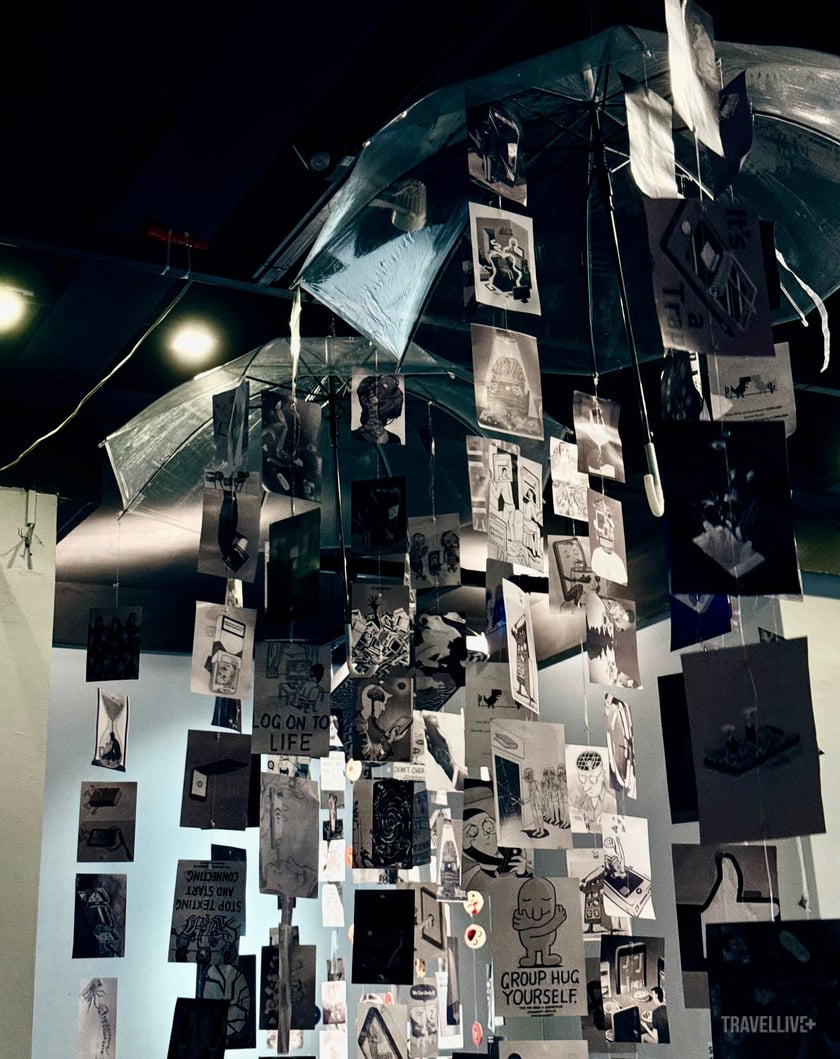
Data rain
The exhibition is not just a display space, but also an emotional journey. The colors, sounds, and pathways are meticulously calculated from a modern psychological perspective, aiming to create a subtle yet profound impact, prompting viewers not only to observe but also to reflect on how they are living amidst today's digital whirlwind.
Gen Z lives in a world of images, emotions, and rapid reactions, so a call to "reduce social media use" won't be enough without a truly impactful experience. According to project representatives, the biggest challenge is making people realize "brain rot," a phenomenon of decreased attention span, creativity, and connection due to excessive consumption of harmful digital content, because it happens insidiously. Only when people lose patience with a long text or can't concentrate for more than a few minutes do they feel the consequences. The exhibition doesn't call for immediate change, but hopes each person will have a moment of self-reflection when exhausted by the overwhelming amount of information, recalling the suffocating feeling from "Data Rain" or the emptiness in "Stagnant."
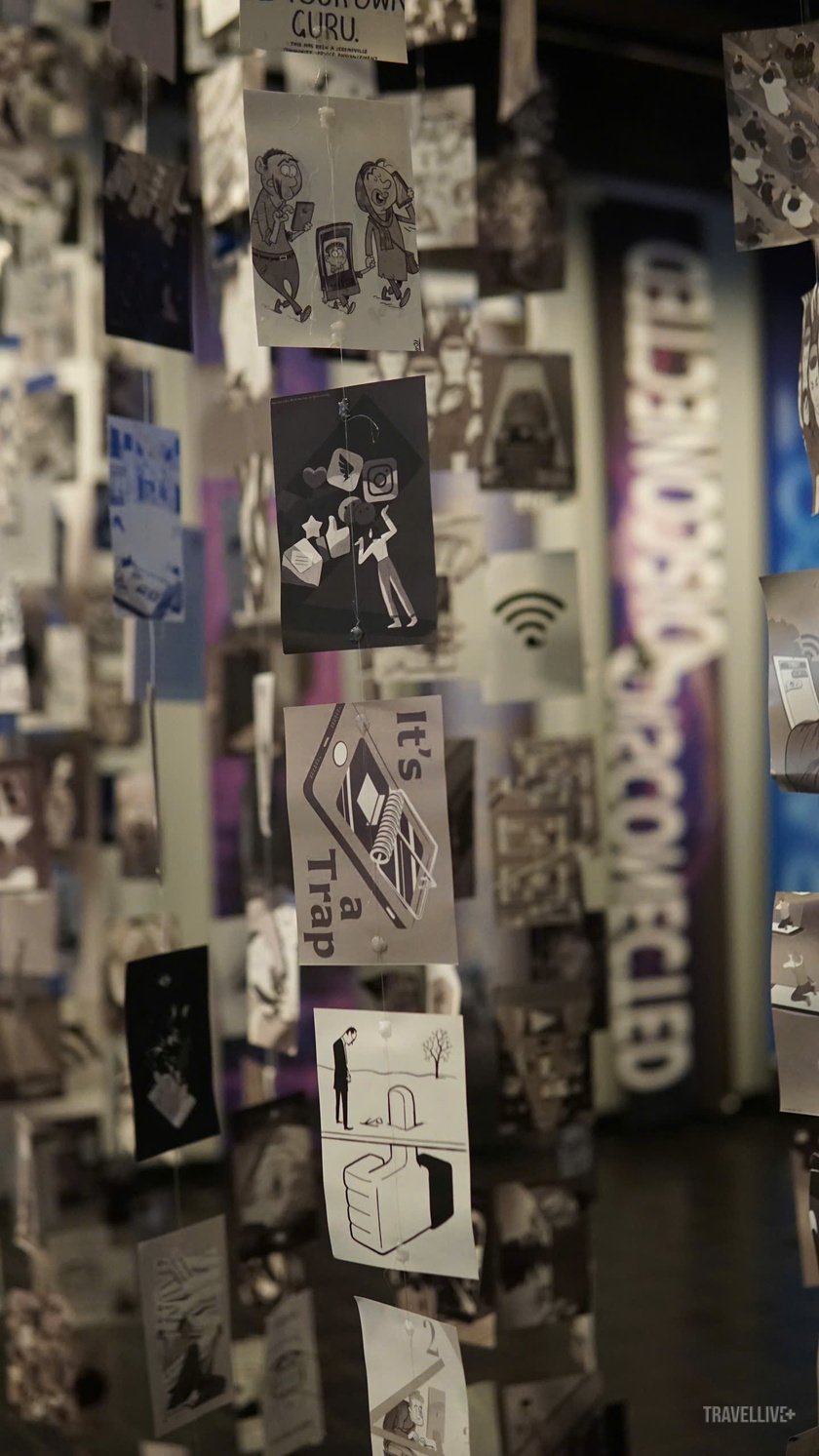
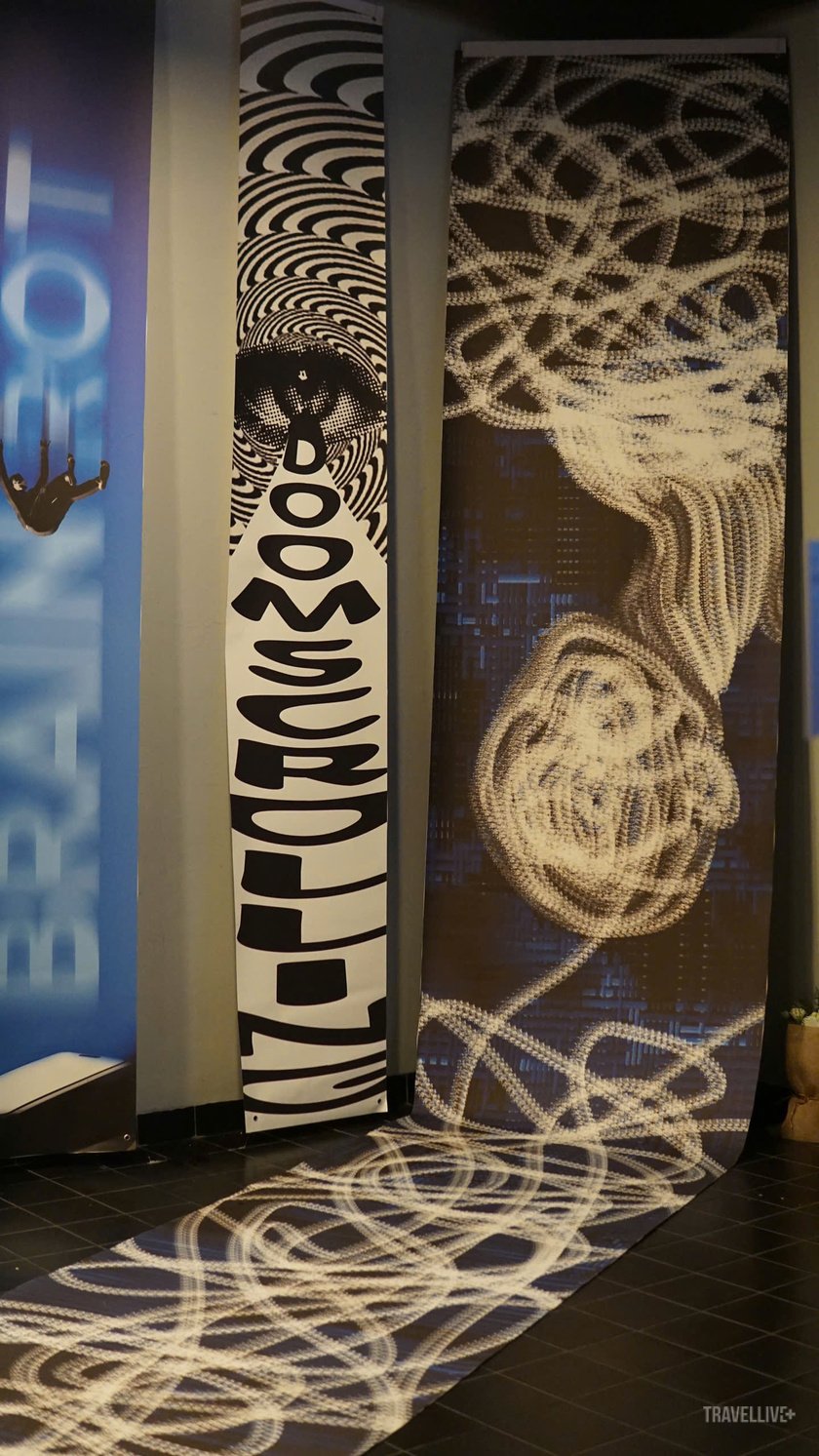
The message of MIND BACK is about choosing mindfulness, not turning your back on technology, but learning to live more proactively and selectively in the digital world. The project is expanding to schools, youth centers, and many other community spaces, with the goal not of changing an entire generation, but of helping each young person understand themselves, thereby building a healthier digital environment, not because of less technology, but because of more awareness.
Clinical psychologist Master Vu Van Thuan (Central Psychiatric Hospital No. 1 & Central Children's Hospital) said: "I have treated many cases of children with reduced concentration and social disconnection after the online learning period following Covid-19. It might seem like a teenage crisis, but it's actually a consequence of indiscriminate consumption of digital content. This is 'brain rot' – a real, pressing problem that needs to be taken seriously."
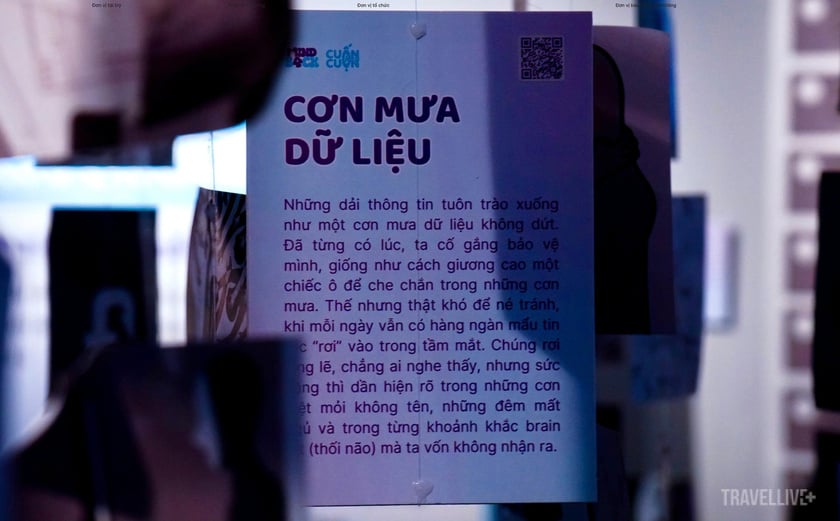
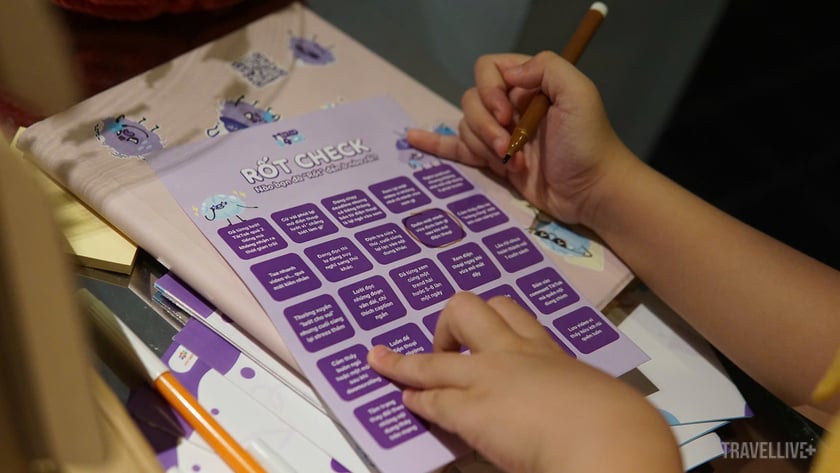
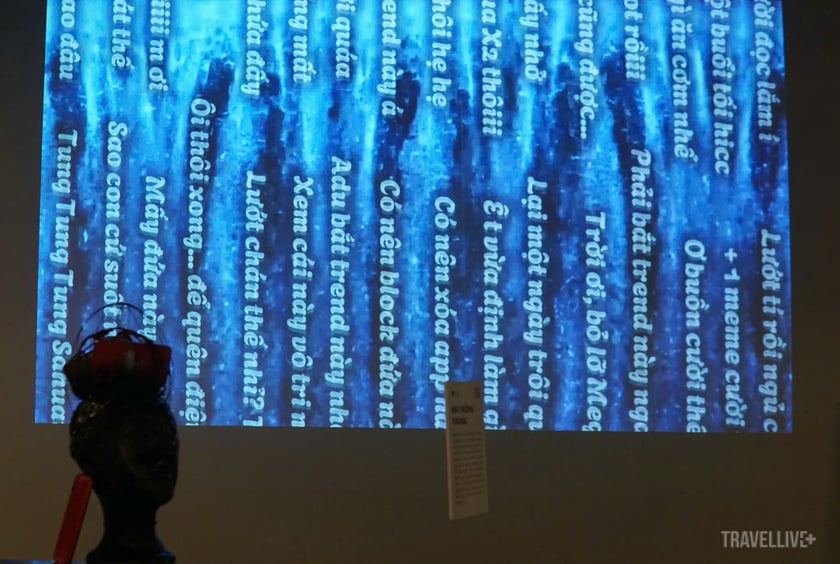
An exhibition is not just a display space, but also a journey of emotional experience.
Without shying away from the truth, Huy Pham – Head of Content at METUB Network – warns: “If you don’t want to be ‘brainwashed,’ don’t let artificial intelligence misunderstand your behavior. Scroll past quickly, report if necessary, and don’t interact with pointless content. Because every view, every like contributes to the very things you want to avoid.”
The art installation exhibition “Scroll or Roll” will take place from July 26-30 at the Vietnam Fine Arts Exhibition House (16 Ngo Quyen, Hanoi). This initiative aims to raise awareness about “brain rot” and encourage young people, especially Gen Z, to re-examine their indiscriminate consumption of digital content. At the same time, it is also a call to self-awareness: to dare to question oneself, “detox” from harmful content, and work together to build a healthier digital environment for individuals and the community.
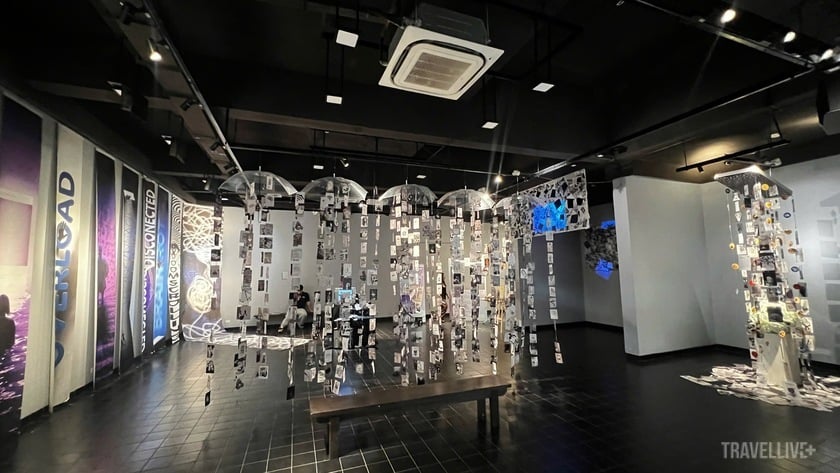

 VI
VI EN
EN



